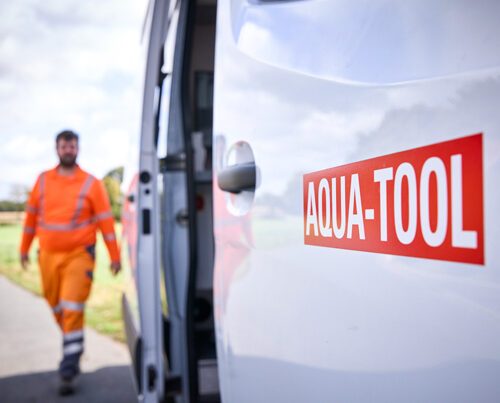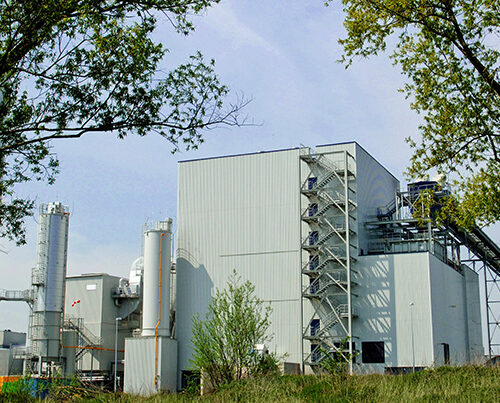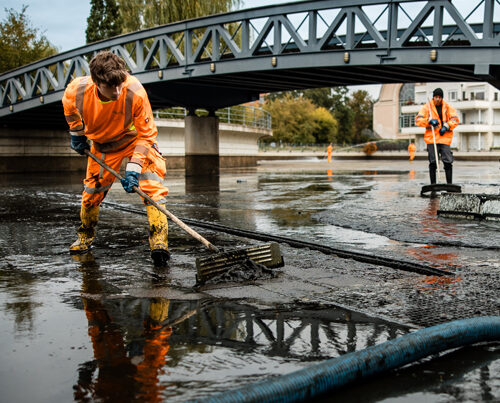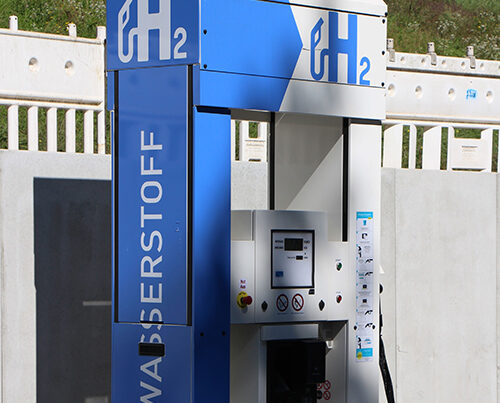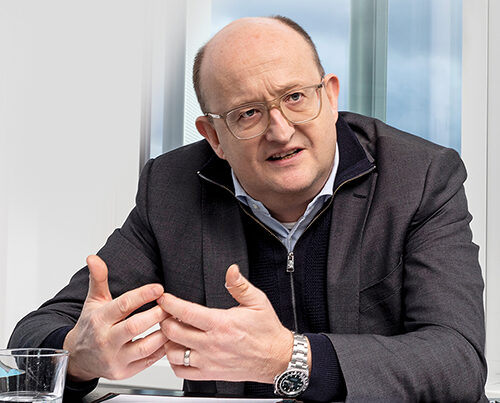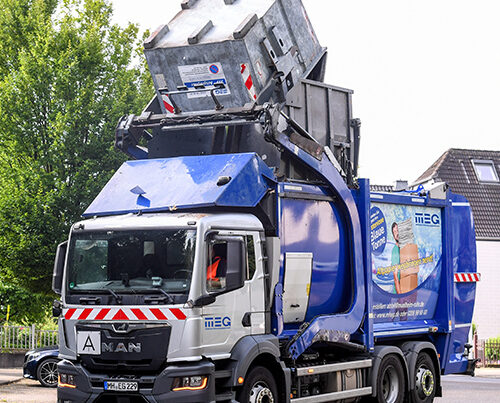One of the most modern waste collection vehicles is now on the streets of Oberhausen. It is an electrically powered vehicle with hydrogen fuel cells. Oberhausen’s mayor, Daniel Schranz, and Guido Hanning from REMONDIS were also present at the presentation of the new vehicle at the central depot of Wirtschaftsbetriebe Oberhausen (WBO). By using the hydrogen lorry, WBO is taking the next step towards making its waste collection operations more climate neutral.
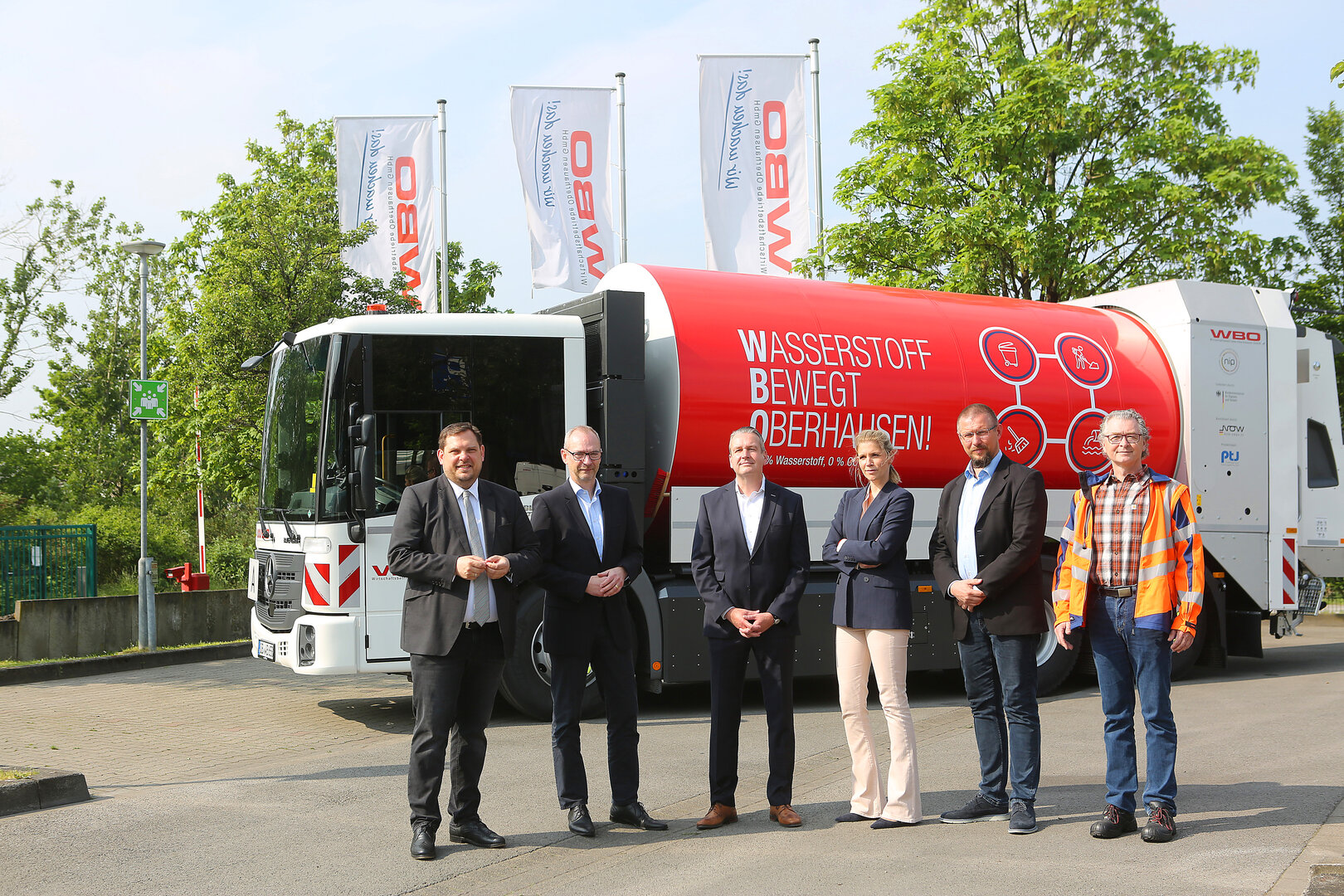
From left: Mayor Daniel Schranz, Andreas Kußel (WBO), Guido Hanning (REMONDIS), Julia Hadrossek, Arndt Mothes and Ralf Wehren (all from WBO) presented the new hydrogen waste collection vehicle
WBO managing director Andreas Kußel: “Due to the heterogeneity of our fleet, we use various technologies in our vehicles: we already have a gas-powered lorry and several smaller vehicles with electric drives. Our heavy goods vehicles also run on the climate-friendly fuel HVO. The move towards hydrogen drive is a further step towards gradually making waste disposal more emission-free and supporting climate protection.”
Julia Hadrossek, managing director of WBO, adds: “It is also important for us that not only low-emission vehicles are on the road at WBO in the future, but that the appropriate infrastructure is also in place to charge and refuel them. In addition, we must always consider the economic viability, which must always be a given for us as a company that is partly financed by charges.”
„This electrically powered vehicle with hydrogen fuel cells is a further step towards more climate protection. I am grateful that the WBO was able to purchase the vehicle with the help of federal funding and is now using it on the streets of Oberhausen. After all, the use of hydrogen is a key building block for a successful energy transition – including at municipal level.“
Mayor Daniel Schranz
Electric motor, battery and hydrogen as range extenders
In future, the new collection vehicle will be used for household waste collection. The vehicle is electrically powered. Like conventional electric cars, it has a battery with a capacity of around 100 kWh. It is charged at a conventional charging station at the WBO’s central depot. As the capacity is not sufficient for daily use, the three fuel cells, which are fed with hydrogen, are used. The hydrogen is stored in four tanks and serves as a range extender so that the vehicle can complete the entire day’s journey.
Funding via the Federal Ministry
WBO set the course for the purchase of the hydrogen truck at the end of 2020, when it submitted an application for funding under the National Innovation Programme for Hydrogen and Fuel Cell Technology of the then Federal Ministry of Transport and Digital Infrastructure (BMVI), now the Federal Ministry of Digital and Transport (BMDV). The funding guideline was implemented by NOW GmbH (National Organisation Hydrogen and Fuel Cell Technology) and Project Management Jülich (PtJ). “The funding was a decisive factor for us when considering purchasing the vehicle, as the cost of a hydrogen lorry is around three times the price of a diesel collection vehicle,” says Kußel. The vehicle, which is hand-assembled by Faun, cost around one million euros. Over 660,000 euros of this was covered by the federal subsidy.
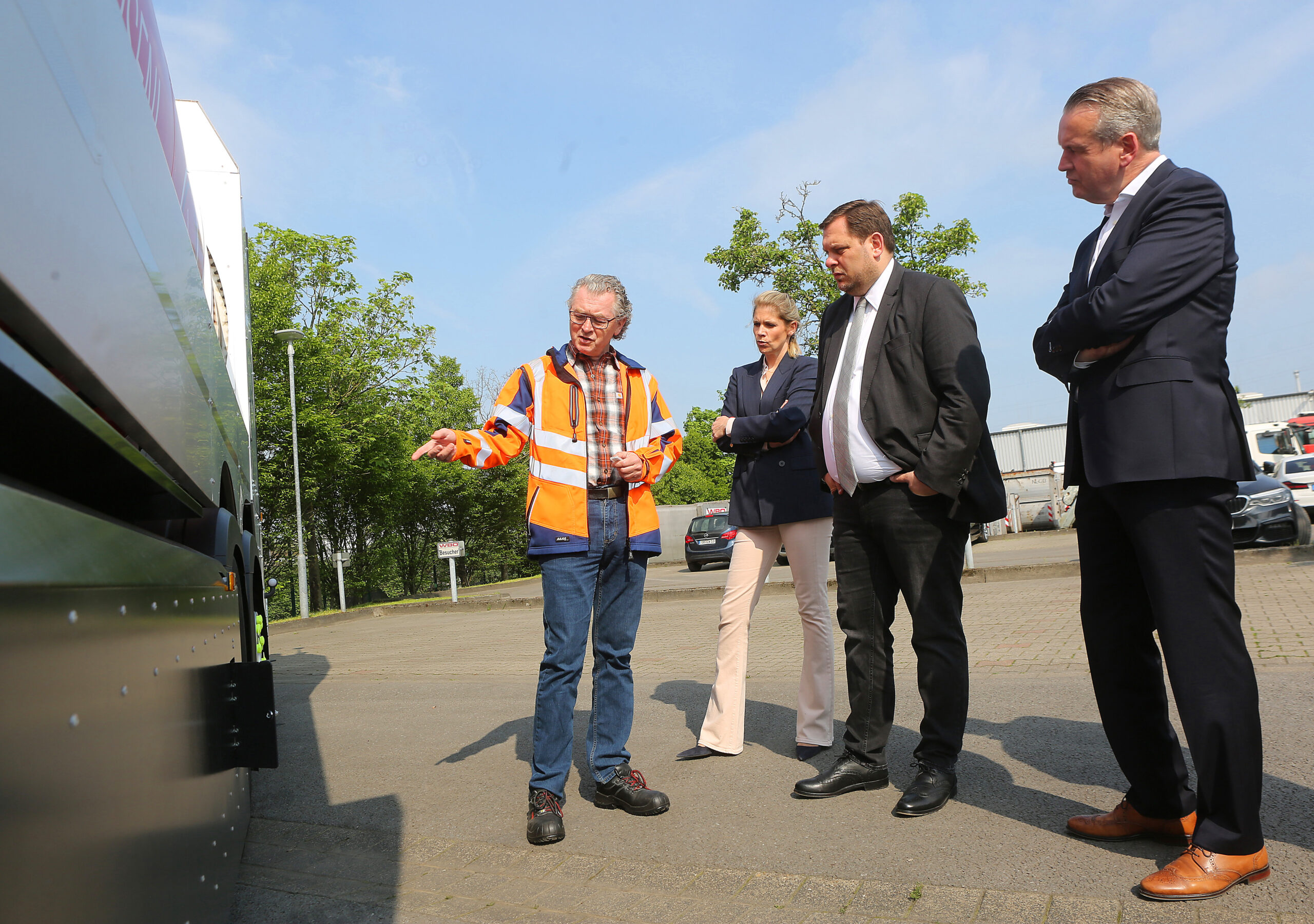
“We are delighted that the vehicle can finally start its service and is now on the road in the city,” says WBO managing director Julia Hadrossek. It will certainly attract attention, as the drum shines in WBO red and the lettering “Hydrogen moves Oberhausen” clearly shows the direction in which the WBO is moving in terms of climate protection.
Image credits: © WBO







